Refugee/Migrant Crisis
- Thread starter Tecumsehsbones
- Start date
You are using an out of date browser. It may not display this or other websites correctly.
You should upgrade or use an alternative browser.
You should upgrade or use an alternative browser.
Can we do some mix n' match? Like bomb camps?Build camps or bomb Haiti. Take your pick.
Bomb camps, or bomb the camps?Can we do some mix n' match? Like bomb camps?
Bomb the bomb camps, of course.Bomb camps, or bomb the camps?
Hey, I WAS Air Force.
"When you care enough to send the very best. . ."
More like air farce .Bomb the bomb camps, of course.
Hey, I WAS Air Force.
"When you care enough to send the very best. . ."
B.S. everyone knows or should know that there are plenty of cameras on the border .Hmn... so MTG doesn't seem to care about border patrol agents apparently.
Ontario to see higher numbers of economic immigrants under federal agreement
Author of the article:Canadian Press
Canadian Press
Published Mar 18, 2023 • 2 minute read
Ontario is set to double the number of economic immigrants it welcomes to the province under an agreement with the federal government to boost the Ontario Immigrant Nominee Program.
The federal and provincial immigration ministers are announcing today that the province will have more than 18,000 spots under the program in 2025.
Ontario Labour and Immigration Minister Monte McNaughton called for the doubling in 2021 when the province was allowed to bring in 9,000 people under that program.
The new agreement will see Ontario go from 9,750 immigrants under the program in 2022 to welcoming 16,500 in 2023, more than 17,000 in 2024, and more than 18,000 in 2025.
The Ford government says people brought in through last year’s allocation included 3,900 skilled trades workers, 2,200 software and IT workers, 1,000 truck drivers and more than 100 nurses and personal support workers.
McNaughton says the number of health-care workers in particular will change drastically.
“It’s no secret that we’re faced with historic labour shortages,” he said in an interview.
“I’m going to prioritize, going forward, health-care workers and skilled trades workers as the two groups that we’re really going to work to recruit to Ontario to fill labour shortages.”
McNaughton said Ontario has already put measures in place to prepare for a hoped influx under this program, including removing Canadian work experience requirements, giving newcomers more access to training programs and working to approve applications on average within 90 days.
“It’s about ensuring that we have all hands on deck to fill labour shortages, set people up for success and grow our economy.”
Federal Immigration Minister Sean Fraser said this year’s annual immigration levels plan was the “most ambitious” in Canada’s history.
“The need to attract talent that will both meet the demands of the labour market in the short term and attract the talent to position Canada for success in the long term was a top priority,” he said in a statement.
“This increase will help ensure Ontario’s growth in key sectors like home building and health care, while also distributing the benefits of immigration to every region of the country.”
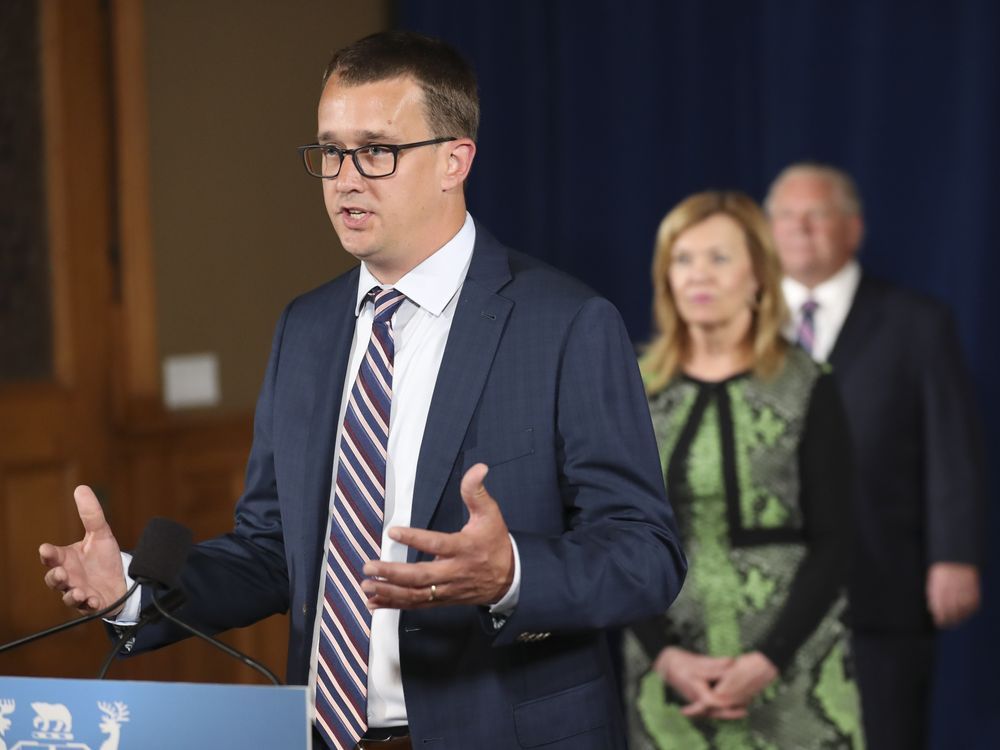
 torontosun.com
torontosun.com
Author of the article:Canadian Press
Canadian Press
Published Mar 18, 2023 • 2 minute read
Ontario is set to double the number of economic immigrants it welcomes to the province under an agreement with the federal government to boost the Ontario Immigrant Nominee Program.
The federal and provincial immigration ministers are announcing today that the province will have more than 18,000 spots under the program in 2025.
Ontario Labour and Immigration Minister Monte McNaughton called for the doubling in 2021 when the province was allowed to bring in 9,000 people under that program.
The new agreement will see Ontario go from 9,750 immigrants under the program in 2022 to welcoming 16,500 in 2023, more than 17,000 in 2024, and more than 18,000 in 2025.
The Ford government says people brought in through last year’s allocation included 3,900 skilled trades workers, 2,200 software and IT workers, 1,000 truck drivers and more than 100 nurses and personal support workers.
McNaughton says the number of health-care workers in particular will change drastically.
“It’s no secret that we’re faced with historic labour shortages,” he said in an interview.
“I’m going to prioritize, going forward, health-care workers and skilled trades workers as the two groups that we’re really going to work to recruit to Ontario to fill labour shortages.”
McNaughton said Ontario has already put measures in place to prepare for a hoped influx under this program, including removing Canadian work experience requirements, giving newcomers more access to training programs and working to approve applications on average within 90 days.
“It’s about ensuring that we have all hands on deck to fill labour shortages, set people up for success and grow our economy.”
Federal Immigration Minister Sean Fraser said this year’s annual immigration levels plan was the “most ambitious” in Canada’s history.
“The need to attract talent that will both meet the demands of the labour market in the short term and attract the talent to position Canada for success in the long term was a top priority,” he said in a statement.
“This increase will help ensure Ontario’s growth in key sectors like home building and health care, while also distributing the benefits of immigration to every region of the country.”

Ontario to see higher numbers of economic immigrants under federal agreement
Ontario is set to double the number of economic immigrants it welcomes to the province under an agreement with the federal government.
Canada to accept more Syrian, Turkish residents after earthquake
Author of the article:Canadian Press
Canadian Press
Maan Alhmidi
Published Mar 18, 2023 • Last updated 1 day ago • 4 minute read
TORONTO — Canada will make it easier for temporary residents from Turkey and Syria to extend their stay in the country and will prioritize the visa applications of people from these two countries, Immigration Minister Sean Fraser said on Saturday.
More than 50,000 people have been killed and millions displaced after the 7.8-magnitude quake and several powerful aftershocks hit southern Turkey and northern Syria on Feb. 6.
Fraser said the government will allow people from Turkey and Syria who have a temporary status to visit family, study or work in Canada to apply for an extension and will waive the application fees for them.
He said his department will also prioritize processing temporary visa applications for people affected by the earthquake.
“For those who apply for a temporary residency visa, we will be able to treat their applications with priority processing,” Fraser said at a news conference in Mississauga, Ont.
“(There are) special measures that we’re implementing, internal to our system, to provide guidance to our officers to facilitate the approval of their cases so they can come to Canada.”
Fraser said the government has learned from its efforts to accept people fleeing Ukraine after the Russian invasion of their country last year. The government offered temporary protection to large numbers of people from Ukraine much faster than it could through ordinary refugee resettlement programs, he said.
“We’re using a new strategy to help facilitate the arrival of people who find themselves in those situations (who) ordinarily may not be approved to come to Canada,” he said.
“The specific mechanism that we’re using involves the use of advanced analytics within (the immigration department) system to identify people who have been impacted by the earthquake and to render a positive eligibility decision for a whole group of applicants at once.”
As of March 10, about 600 Syrian and 6,400 Turkish residents in Canada had temporary status that is set to expire within the next six months, the government said.
There were close to 16,000 Canadian visa applicants from Turkey and Syria as of Feb. 8, including about 1,700 applicants who live within the area that was impacted by the earthquakes, said the government.
Marwa Khobieh, executive director of the Syrian Canadian Foundation, said the new government measures to help those impacted by the earthquake are a start, but more work is still needed to support the survivors.
About 6.9 million people were internally displaced inside Syria before the earthquake and more than 6.8 million Syrians have been forced to flee their country since 2011, including 3.6 million in Turkey alone, according to the United Nations.
“Not everybody is aware of the challenges that Syria is facing due to the crisis prior to the earthquake,” Khobieh said.
“Especially (people) in northwest Syria, they don’t have any even government that would represent them, how are they going to apply?”
Khobieh said it’s important that the government continue working with community organizations to find solutions to logistical challenges that could prevent many from applying to come to Canada.
Sima Acan, president of the Federation of Canadian Turkish Associations, said the government response to the earthquake in Turkey and Syria has been slow and the government’s new measures are not enough to support Canadians who want to bring their loved ones from the earthquake region.
“Nothing was discussed about (waiving) processing fees for the new applicants from the region. Nothing has been discussed about easing the paperwork (requirements) for the new applicants,” she said.
“Hopefully, they will improve the system but as of now, it doesn’t seem as mature as it should be.”
Acan said new applicants need to give their biometrics so the government can process their visa applications, but many people in Turkey and Syria cannot travel to a Canadian visa office to give their fingerprints and photos.
“We suggested to have a mobile biometric centre southeast of Turkey, so the northern Syrian people can also travel to do their application,” she said. “They have mobile units to do biometrics, and they may have a chance to move these units wherever it’s convenient for people.”
Fraser said he expects that giving biometrics will be the “biggest logistical challenge” for those who want to apply to come to Canada for the areas that were hit by the earthquake.
“People will be required to make their way into a place where we’re able to offer biometrics appointments,” he said. “We can be flexible and move some of the mobile biometric kits that we have available. It’s something we’re willing to consider.”
Ozgure Sekar said he wants to bring his sister and brother to join him in Canada after the earthquake destroyed their homes in southern Turkey last month.
The Toronto man travelled to areas damaged by the quake to support his family members and friends, before coming back to Canada from the city of Antakya in Turkey earlier this week.
He said his sister lost several members of her family, including her 12-year-old son. His brother, who lived in the family house with his mother, wife and four children, lost his home and job.
“All the city is destroyed. Thousands of people are dead. It’s a very bad situation,” Sekar said in an interview.
“People are staying in tents. No one is staying in a house. All houses are destroyed. No electricity. The water is not too much. People are crying in mental shock.”
Sekar said he has been waiting for the government to make it easier for Canadians with loved ones impacted by the earthquake to apply for them to come to Canada.
“There is no opportunity to stay there. The cities need five to six years to be rebuilt,” he said. “The best opportunity is to bring (my sister and brother) for a couple years here. Stay with me. Mentally, they will become better.”
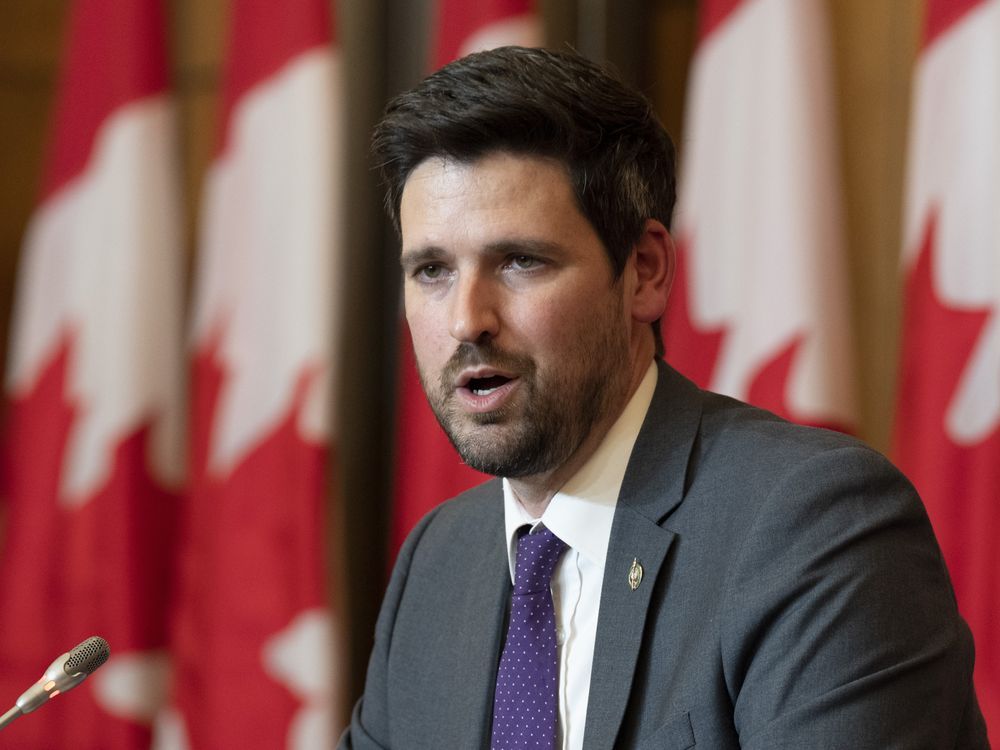
 torontosun.com
torontosun.com
Author of the article:Canadian Press
Canadian Press
Maan Alhmidi
Published Mar 18, 2023 • Last updated 1 day ago • 4 minute read
TORONTO — Canada will make it easier for temporary residents from Turkey and Syria to extend their stay in the country and will prioritize the visa applications of people from these two countries, Immigration Minister Sean Fraser said on Saturday.
More than 50,000 people have been killed and millions displaced after the 7.8-magnitude quake and several powerful aftershocks hit southern Turkey and northern Syria on Feb. 6.
Fraser said the government will allow people from Turkey and Syria who have a temporary status to visit family, study or work in Canada to apply for an extension and will waive the application fees for them.
He said his department will also prioritize processing temporary visa applications for people affected by the earthquake.
“For those who apply for a temporary residency visa, we will be able to treat their applications with priority processing,” Fraser said at a news conference in Mississauga, Ont.
“(There are) special measures that we’re implementing, internal to our system, to provide guidance to our officers to facilitate the approval of their cases so they can come to Canada.”
Fraser said the government has learned from its efforts to accept people fleeing Ukraine after the Russian invasion of their country last year. The government offered temporary protection to large numbers of people from Ukraine much faster than it could through ordinary refugee resettlement programs, he said.
“We’re using a new strategy to help facilitate the arrival of people who find themselves in those situations (who) ordinarily may not be approved to come to Canada,” he said.
“The specific mechanism that we’re using involves the use of advanced analytics within (the immigration department) system to identify people who have been impacted by the earthquake and to render a positive eligibility decision for a whole group of applicants at once.”
As of March 10, about 600 Syrian and 6,400 Turkish residents in Canada had temporary status that is set to expire within the next six months, the government said.
There were close to 16,000 Canadian visa applicants from Turkey and Syria as of Feb. 8, including about 1,700 applicants who live within the area that was impacted by the earthquakes, said the government.
Marwa Khobieh, executive director of the Syrian Canadian Foundation, said the new government measures to help those impacted by the earthquake are a start, but more work is still needed to support the survivors.
About 6.9 million people were internally displaced inside Syria before the earthquake and more than 6.8 million Syrians have been forced to flee their country since 2011, including 3.6 million in Turkey alone, according to the United Nations.
“Not everybody is aware of the challenges that Syria is facing due to the crisis prior to the earthquake,” Khobieh said.
“Especially (people) in northwest Syria, they don’t have any even government that would represent them, how are they going to apply?”
Khobieh said it’s important that the government continue working with community organizations to find solutions to logistical challenges that could prevent many from applying to come to Canada.
Sima Acan, president of the Federation of Canadian Turkish Associations, said the government response to the earthquake in Turkey and Syria has been slow and the government’s new measures are not enough to support Canadians who want to bring their loved ones from the earthquake region.
“Nothing was discussed about (waiving) processing fees for the new applicants from the region. Nothing has been discussed about easing the paperwork (requirements) for the new applicants,” she said.
“Hopefully, they will improve the system but as of now, it doesn’t seem as mature as it should be.”
Acan said new applicants need to give their biometrics so the government can process their visa applications, but many people in Turkey and Syria cannot travel to a Canadian visa office to give their fingerprints and photos.
“We suggested to have a mobile biometric centre southeast of Turkey, so the northern Syrian people can also travel to do their application,” she said. “They have mobile units to do biometrics, and they may have a chance to move these units wherever it’s convenient for people.”
Fraser said he expects that giving biometrics will be the “biggest logistical challenge” for those who want to apply to come to Canada for the areas that were hit by the earthquake.
“People will be required to make their way into a place where we’re able to offer biometrics appointments,” he said. “We can be flexible and move some of the mobile biometric kits that we have available. It’s something we’re willing to consider.”
Ozgure Sekar said he wants to bring his sister and brother to join him in Canada after the earthquake destroyed their homes in southern Turkey last month.
The Toronto man travelled to areas damaged by the quake to support his family members and friends, before coming back to Canada from the city of Antakya in Turkey earlier this week.
He said his sister lost several members of her family, including her 12-year-old son. His brother, who lived in the family house with his mother, wife and four children, lost his home and job.
“All the city is destroyed. Thousands of people are dead. It’s a very bad situation,” Sekar said in an interview.
“People are staying in tents. No one is staying in a house. All houses are destroyed. No electricity. The water is not too much. People are crying in mental shock.”
Sekar said he has been waiting for the government to make it easier for Canadians with loved ones impacted by the earthquake to apply for them to come to Canada.
“There is no opportunity to stay there. The cities need five to six years to be rebuilt,” he said. “The best opportunity is to bring (my sister and brother) for a couple years here. Stay with me. Mentally, they will become better.”

Canada to accept more Syrian, Turkish residents after earthquake
Canada will make it easier for people from Turkey and Syria to extend their stay and will prioritize visa applications from those countries.
Hundreds rally for undocumented and migrant worker rights
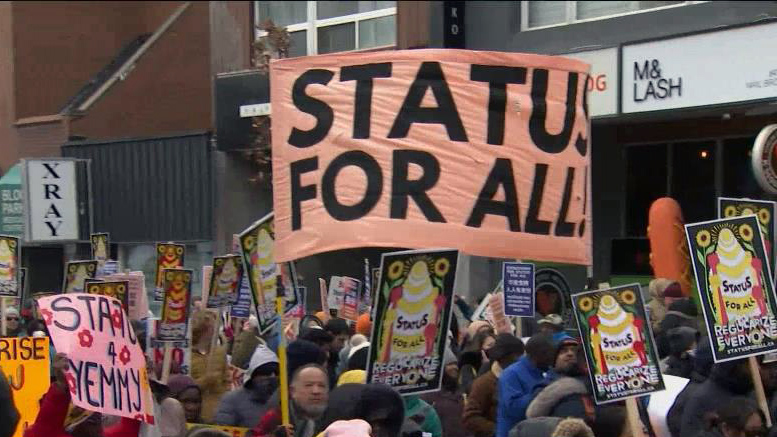
Hundreds rally for undocumented and migrant worker rights
Hundreds of people rallied Sunday to demand the Canadian government do more to help migrant and undocumented workers.
Migrant workers already have Rights.Hundreds rally for undocumented and migrant worker rights

Hundreds rally for undocumented and migrant worker rights
Hundreds of people rallied Sunday to demand the Canadian government do more to help migrant and undocumented workers.toronto.citynews.ca
If Toronto wants to pay for them all, go for it!! We need regulated immigration so we can actually accommodate those who come here.Migrant workers already have Rights.
Migrant workers are not immigrants.If Toronto wants to pay for them all, go for it!! We need regulated immigration so we can actually accommodate those who come here.
I'm not referring to migrants - I'm referring to immigrants.Migrant workers are not immigrants.
The thing is kind of being confused to deceive the gullible. Migrants have work papers. Along with that comes certain rights. Illegal immigrants really only have the right to be sent back to wherever they came from.Migrant workers already have Rights.
Wow, Canada's pretty harsh. The U.S. Constitution recognizes rights all people have, regardless of their status.The thing is kind of being confused to deceive the gullible. Migrants have work papers. Along with that comes certain rights. Illegal immigrants really only have the right to be sent back to wherever they came from.
Two men who lost fingers crossing into Canada become Canadian citizens
Author of the article:Canadian Press
Canadian Press
Brittany Hobson
Published Mar 20, 2023 • 3 minute read
WINNIPEG — Razak Iyal was given a warm embrace as he officially became a Canadian citizen, more than six years after nearly freezing to death walking across the Canada-United States border in Manitoba.
It was a low-key citizenship ceremony but one steeped in hope, gratitude and assurance.
Iyal, 40, was joined by a group of close friends as he logged on last week for the virtual event, which included dozens of others sitting in front of a judge to swear their allegiance to Canada.
As the ceremony concluded with the playing of O Canada, the Ghana-born Iyal revelled in his new Canadian status.
“At that time, I (felt) like a Canadian because reciting the national anthem means everything,” he said Monday in an interview.
The day concluded with a few photos and some food. Iyal was gifted a Canadian flag by a woman and friend whom he calls his “Canadian mom.” He held onto the flag as he took his oath.
“I’ll make sure I protect this flag … because this country saved my life, and it gave me everything that I want.”
Iyal was among a wave of refugee-claimants who snuck into Canada from the United States in 2016 out of fear of being deported back to their home countries.
He met up with Seidu Mohammed, 30, another man from Ghana, at a bus station in Minneapolis. The two men took a bus to Grand Forks, N.D., then a taxi to an area near the border.
On Christmas Eve, they trudged through snowy fields in the dark for hours as temperatures dipped to -30 C. They were not dressed for such a trip and suffered severe frostbite before they were noticed by a trucker after crossing into Canada.
They spent weeks recovering in hospital. Iyal lost all his fingers but kept his thumbs, while Mohammed lost all his fingers and thumbs.
The two were granted refugee status in 2017. Iyal said he fled Ghana because his life was threatened in a dispute over the inheritance of his late father’s property.
Iyal and Mohammed, who were once strangers, said they remain close like brothers.
Mohammed celebrated becoming a Canadian citizen March 6.
“After we took the oath, and the judge said you are you are all now Canadian citizens, I was excited about that,” he said.
“It was a long wait, but it was worth the wait. And now we are here in a new chapter.”
Mohammed sought asylum on the basis that as a bisexual man he would face serious physical harm if he had to return to Ghana.
Since arriving in Canada, Mohammed said he has enrolled in school to finish hiseducation. He then hopes to go to post-secondary school to study business and sports administration.
He also co-founded Manitoba African Cup of Nations, a non-profit organization that hosts soccer events for Black youth.
Iyal said he works and also hopes to attend university in the future. He has focused his energy on trying to bring his wife to Canada.
The men’s stories made international headlines resulting in offers of help from various immigration and newcomer groups. Iyal and Mohammed said they strive to provide the same hospitality to others.
“When we come here, the people help us. So it’s a time for us also to give back to the community and continue doing this as a Canadian,” said Iyal.
The two said they have made it their mission to provide advice and support to other asylum seekers so they don’t meet a similar fate.
“This is a difficult journey that we went through, and we don’t want anybody to go through the same thing,” said Mohammed.
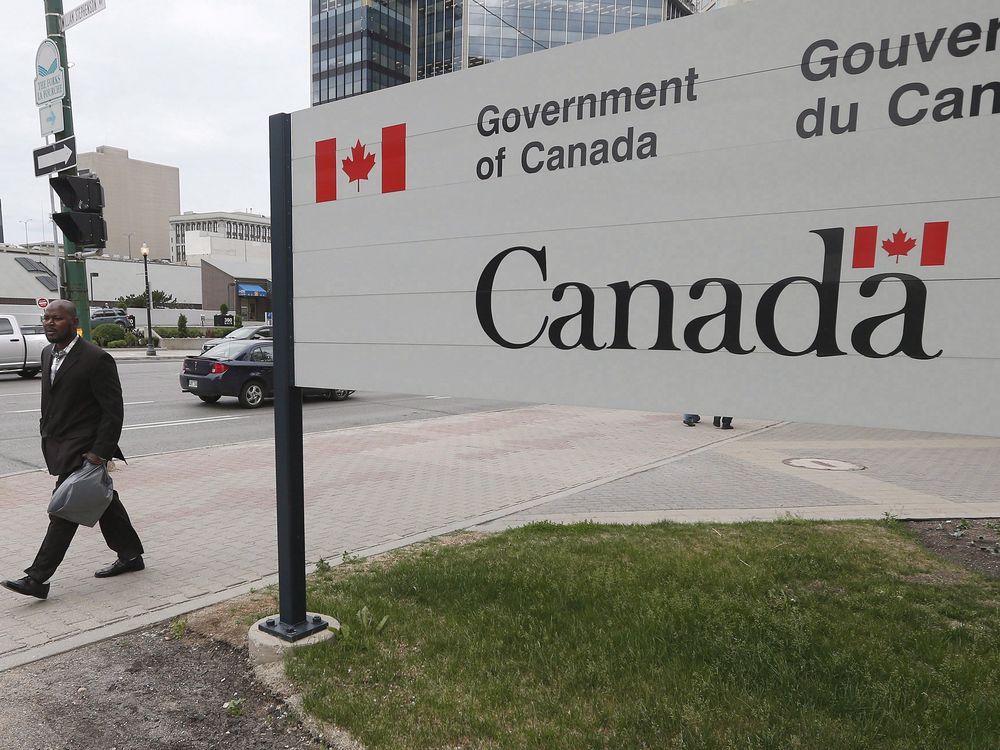
 torontosun.com
torontosun.com
Author of the article:Canadian Press
Canadian Press
Brittany Hobson
Published Mar 20, 2023 • 3 minute read
WINNIPEG — Razak Iyal was given a warm embrace as he officially became a Canadian citizen, more than six years after nearly freezing to death walking across the Canada-United States border in Manitoba.
It was a low-key citizenship ceremony but one steeped in hope, gratitude and assurance.
Iyal, 40, was joined by a group of close friends as he logged on last week for the virtual event, which included dozens of others sitting in front of a judge to swear their allegiance to Canada.
As the ceremony concluded with the playing of O Canada, the Ghana-born Iyal revelled in his new Canadian status.
“At that time, I (felt) like a Canadian because reciting the national anthem means everything,” he said Monday in an interview.
The day concluded with a few photos and some food. Iyal was gifted a Canadian flag by a woman and friend whom he calls his “Canadian mom.” He held onto the flag as he took his oath.
“I’ll make sure I protect this flag … because this country saved my life, and it gave me everything that I want.”
Iyal was among a wave of refugee-claimants who snuck into Canada from the United States in 2016 out of fear of being deported back to their home countries.
He met up with Seidu Mohammed, 30, another man from Ghana, at a bus station in Minneapolis. The two men took a bus to Grand Forks, N.D., then a taxi to an area near the border.
On Christmas Eve, they trudged through snowy fields in the dark for hours as temperatures dipped to -30 C. They were not dressed for such a trip and suffered severe frostbite before they were noticed by a trucker after crossing into Canada.
They spent weeks recovering in hospital. Iyal lost all his fingers but kept his thumbs, while Mohammed lost all his fingers and thumbs.
The two were granted refugee status in 2017. Iyal said he fled Ghana because his life was threatened in a dispute over the inheritance of his late father’s property.
Iyal and Mohammed, who were once strangers, said they remain close like brothers.
Mohammed celebrated becoming a Canadian citizen March 6.
“After we took the oath, and the judge said you are you are all now Canadian citizens, I was excited about that,” he said.
“It was a long wait, but it was worth the wait. And now we are here in a new chapter.”
Mohammed sought asylum on the basis that as a bisexual man he would face serious physical harm if he had to return to Ghana.
Since arriving in Canada, Mohammed said he has enrolled in school to finish hiseducation. He then hopes to go to post-secondary school to study business and sports administration.
He also co-founded Manitoba African Cup of Nations, a non-profit organization that hosts soccer events for Black youth.
Iyal said he works and also hopes to attend university in the future. He has focused his energy on trying to bring his wife to Canada.
The men’s stories made international headlines resulting in offers of help from various immigration and newcomer groups. Iyal and Mohammed said they strive to provide the same hospitality to others.
“When we come here, the people help us. So it’s a time for us also to give back to the community and continue doing this as a Canadian,” said Iyal.
The two said they have made it their mission to provide advice and support to other asylum seekers so they don’t meet a similar fate.
“This is a difficult journey that we went through, and we don’t want anybody to go through the same thing,” said Mohammed.

Two men who lost fingers crossing into Canada become Canadian citizens
Razak Iyal was given a warm embrace as he officially became a Canadian citizen.
Help asylum seekers with 'a good-paying job,' Ford says
Author of the article:Antonella Artuso
Published Mar 22, 2023 • Last updated 1 day ago • 1 minute read
Canada should welcome people coming into the country through unofficial crossings in Quebec, Premier Doug Ford says.
While he believes newcomers should arrive at the border with their papers in order, Ford said the country should embrace those escaping tyranny or seeking a better life.
“Let’s just help them any way we can,” Ford said Wednesday. “And how you help them is give them a good-paying job.”
The premier was questioned during a media availability about the situation in Niagara Falls where hotel rooms are being used to house thousands of asylum seekers who arrived through the unofficial Roxham Rd. crossing between Quebec and the United States.
Ford was asked if he was prepared to provide financial assistance to the community.
“What we need the feds to do is give these folks working permits immediately,” he responded. “I believe people should be coming through the border properly, doing the proper papers, not sneaking in through a path up through Quebec from New York, that’s my opinion.
“But we have these people here, we’re going to take care of them, we’re going to create jobs for them but folks this is the reason we need to build homes. Those folks there are going to need homes,” Ford said.
Ontario is great because of its diversity with 450,000 people having newly arrived in the province, he said.
Ford said his heart breaks for people coming to Canada, including via Quebec’s unofficial crossing, who want to live in the most beautiful place in the world.
“It’s not their fault, it really isn’t,” Ford said. “Let’s embrace it.”
aartuso@postmedia.com
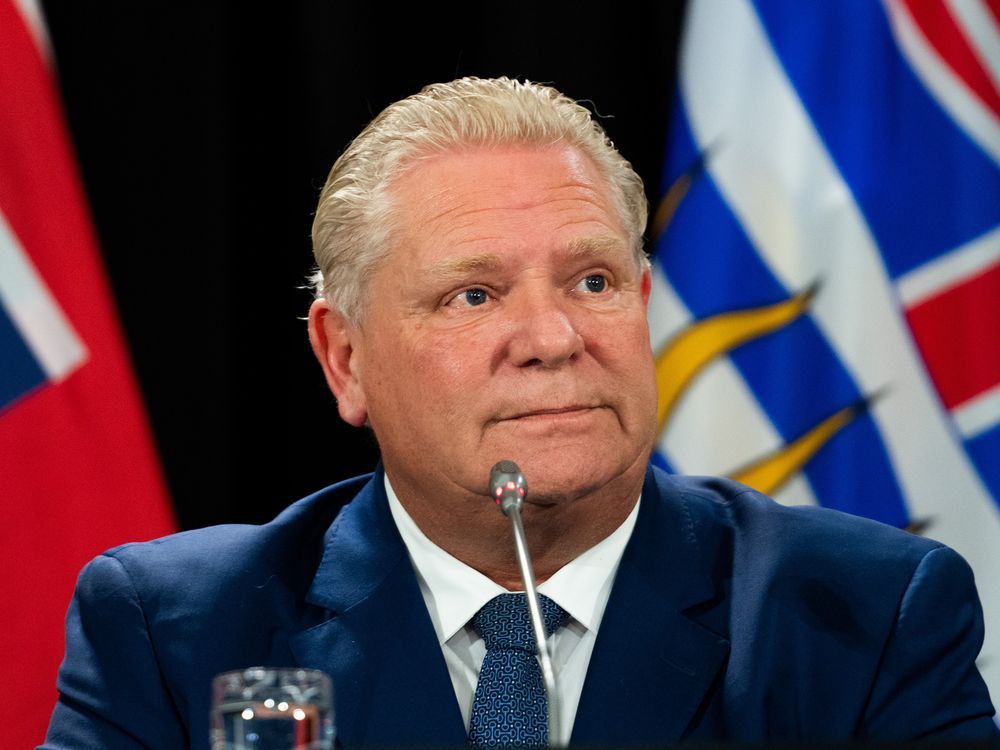
 torontosun.com
torontosun.com
Author of the article:Antonella Artuso
Published Mar 22, 2023 • Last updated 1 day ago • 1 minute read
Canada should welcome people coming into the country through unofficial crossings in Quebec, Premier Doug Ford says.
While he believes newcomers should arrive at the border with their papers in order, Ford said the country should embrace those escaping tyranny or seeking a better life.
“Let’s just help them any way we can,” Ford said Wednesday. “And how you help them is give them a good-paying job.”
The premier was questioned during a media availability about the situation in Niagara Falls where hotel rooms are being used to house thousands of asylum seekers who arrived through the unofficial Roxham Rd. crossing between Quebec and the United States.
Ford was asked if he was prepared to provide financial assistance to the community.
“What we need the feds to do is give these folks working permits immediately,” he responded. “I believe people should be coming through the border properly, doing the proper papers, not sneaking in through a path up through Quebec from New York, that’s my opinion.
“But we have these people here, we’re going to take care of them, we’re going to create jobs for them but folks this is the reason we need to build homes. Those folks there are going to need homes,” Ford said.
Ontario is great because of its diversity with 450,000 people having newly arrived in the province, he said.
Ford said his heart breaks for people coming to Canada, including via Quebec’s unofficial crossing, who want to live in the most beautiful place in the world.
“It’s not their fault, it really isn’t,” Ford said. “Let’s embrace it.”
aartuso@postmedia.com

Help asylum seekers with 'a good-paying job,' Ford says
Canada should welcome people coming into the country through unofficial crossings in Quebec, find them jobs, Premier Doug Ford says.
Ford said his heart breaks for people coming to Canada, including via Quebec’s unofficial crossing, who want to live in the most beautiful place in the world.
If they want to live in the most beautiful place in the world, why fuck are they coming to Canada?
